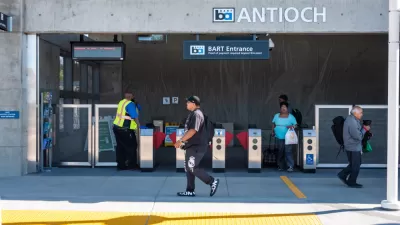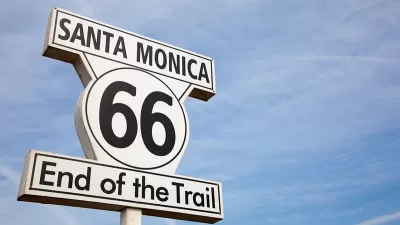Cities that rely on sales and income tax revenues to fund vital local services can expect immediate fiscal consequences from the coronavirus pandemic.

The consequences of the coronavirus pandemic for local government finances depends on whether cities rely on tax sources that respond quickly to economic swings, like sales taxes and income taxes.
The degree to which the fiscal capacity of local governments relies on a healthy economy for revenue depends on the balance of revenue sources, so Michael A. Pagano and Christiana K. McFarland did some analysis to start to anticipate where the economic shock of the pandemic will be felt immediately in the bank accounts of local governments.
“As the crisis unfolds, the impact on cities’ bottom line will be driven not only by overall economic conditions but specifically the parts of the economy where revenue is generated: retail sales, income and wages, and real estate,” according to Pagano and McFarland.
Because the tax structures of cities vary across the country, the consequences of the economic disruption will differ. Cities that rely on property taxes are insulated from the worst effects, for now, according to the article.
The article includes specific information for cities, predicting that Heartland cities like Columbus, Cincinnati, Colorado Springs, and Tulsa can expect the most immediate effects. A map also shows where cities should expect effects in the mid- and longer-term.
FULL STORY: When will your city feel the fiscal impact of COVID-19?

Alabama: Trump Terminates Settlements for Black Communities Harmed By Raw Sewage
Trump deemed the landmark civil rights agreement “illegal DEI and environmental justice policy.”

Study: Maui’s Plan to Convert Vacation Rentals to Long-Term Housing Could Cause Nearly $1 Billion Economic Loss
The plan would reduce visitor accommodation by 25% resulting in 1,900 jobs lost.

Planetizen Federal Action Tracker
A weekly monitor of how Trump’s orders and actions are impacting planners and planning in America.

DC Extends Application Window for Outdoor Dining Permits
District restaurants will have until the end of November to apply, but businesses with permits in rush hour parking lanes must end operations on July 31.

Wind Energy on the Rise Despite Federal Policy Reversal
The Trump administration is revoking federal support for renewable energy, but demand for new projects continues unabated.

Passengers Flock to Caltrain After Electrification
The new electric trains are running faster and more reliably, leading to strong ridership growth on the Bay Area rail system.
Urban Design for Planners 1: Software Tools
This six-course series explores essential urban design concepts using open source software and equips planners with the tools they need to participate fully in the urban design process.
Planning for Universal Design
Learn the tools for implementing Universal Design in planning regulations.
Caltrans
Smith Gee Studio
Institute for Housing and Urban Development Studies (IHS)
City of Grandview
Harvard GSD Executive Education
Toledo-Lucas County Plan Commissions
Salt Lake City
NYU Wagner Graduate School of Public Service





























